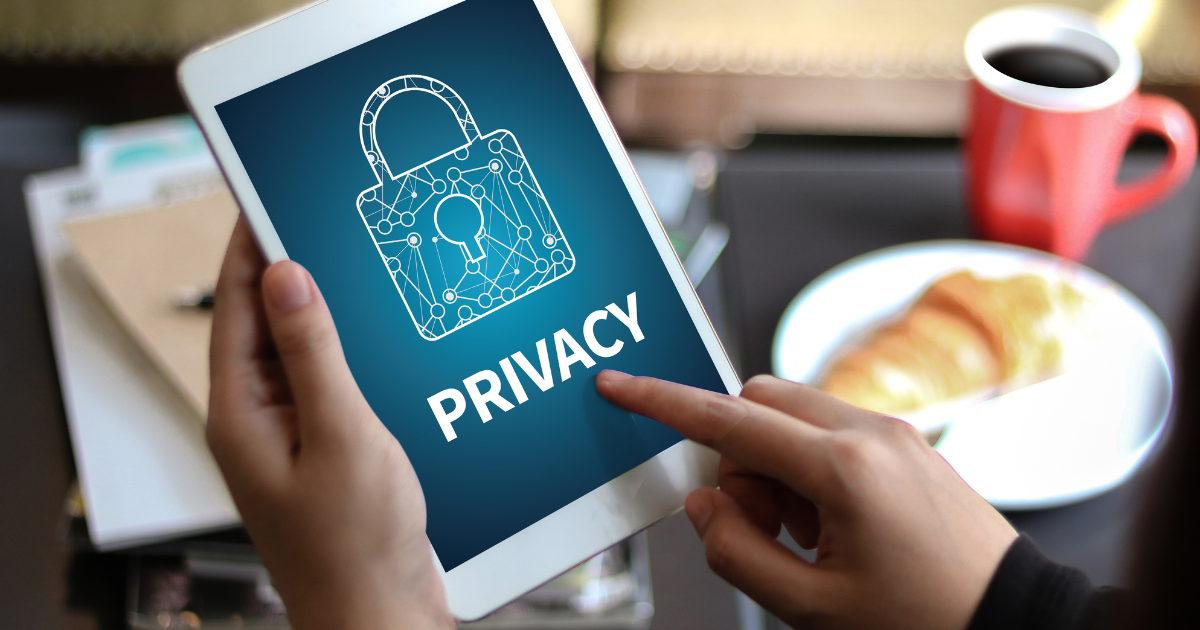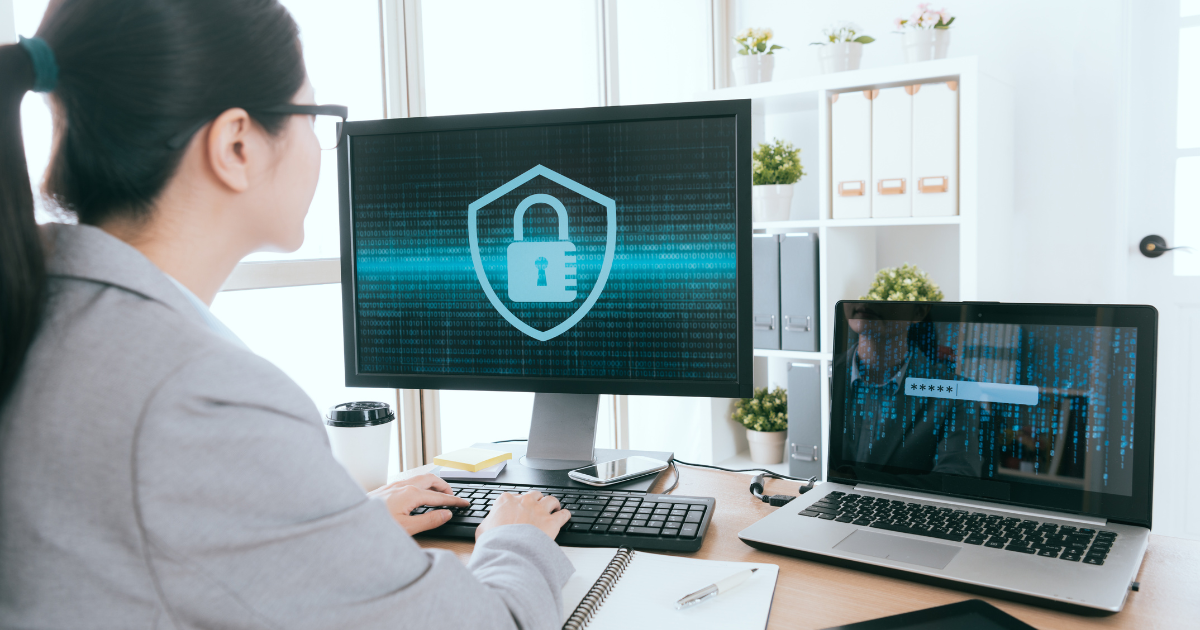A Guide To Securing Your Digital Footprint - Online Privacy For Women
Skeptical about your online privacy as a woman? This guide will give you a broad idea about online privacy for women. Read through and learn the steps you must take.
Living in 2024, there is no way you are not using the internet. You are right now using it to read this blog, right? Did you know you can also make your online safety vulnerable while browsing the internet?
Yes, online privacy for women is at stake for multiple reasons nowadays. Online harassment, identity theft, and data breaches are just a few of the threats that women face in the digital realm. Understanding these risks and taking proactive steps to protect oneself online is crucial.
This guide will teach you how to protect your data security as a woman and become more independent about your browsing choices.

Online Harassment And Cyberbullying
While online harassment and cyberbullying are not a direct form of breaching online privacy protection, they can be harmful. This can come in various ways, like trolling, doxing, and hate speech. The effect might not be seen physically, but it impacts the individual's mental health.
Trolling
Online trolling includes abusive, offensive and threatening comments towards a person. It makes women suffer on the mental side and discourages them from participating effectively in online discussions.
Doxing
Doxing is when someone makes other people's personal information public without their consent. The personal information might be home addresses, phone numbers, or personal photos. It puts women at risk of stalking or physical harm.
Targeted Hate Speech
Targeted hate speeches are done by targeting specific communities or groups of women. It can come in the form of racism towards specific groups.
Identity Theft And Fraud
Identity theft is another common privacy protection issue for women. It includes stealing a person's information and using it to scam people. The Cybercriminals may steal your credit card numbers, Social Security numbers, or login credentials and use them to commit fraud.
Common methods for this are -
Phishing Scams
Phishing attacks are a common method of obtaining personal information. Phishers send emails or messages that look like they are from a legitimate source. When the victim clicks the malicious link, they can track them and ask for sensitive data.
Social Engineering
Social engineering techniques are new. They mean manipulating individuals into revealing confidential information. Cybercriminals portray themselves as trusted organizations to gain access to personal accounts.
Surveillance And Tracking
Do you realize, one fine day you are talking to a friend about buying something over the chat? Then you scroll through your social media or other websites, and the product's ads appear on your device screen.
This is called targeted ads which is a very common method used in digital marketing. You might wonder, these chats and my searches are private. Then how the brand are getting to know what I'm looking for?
Well, the truth is, nothing is private actually. Its true that these information are private for general people but not to the brand because of the surveillance and tracking. So, you must be careful about what data you input somewhere and what sites you are accessing. You also have to be careful about giving access to different apps and sites to your personal information.
Strong Passwords And Multi-Factor Authentication
You can secure your online safety by setting strong passwords and multi-factor authentication. Use a combination of upper and lowercase letters, numbers, and symbols to create strong, unique passwords. Try not to use the same passwords everywhere. Avoid using easily guessable information, such as birthdays or pet names.
Enable multi-factor authentication for your passwords. This adds an extra layer of security by requiring a second form of verification. Do not save passwords in your browser. Rather, use a secure tool to save your passwords.

Privacy Settings On Social Media
To maintain your data security, regularly review and adjust the privacy settings on your social media accounts. You can also adjust them to limit who can see your posts and photos. Restrict the posts to only be viewed by your friends.
Never share your personal information online. Like your home address, phone number, or other sensitive details.
Secure Browsing And Online Banking
For secure browsing and online banking, you can take multiple effective steps. For example, you can use a VPN, learn more about phishing scams and avoid them, and choose secured and verified online banking methods.
Using VPN
VPN, or Virtual Private Network, encrypts public networks and makes your network private. If you use a VPN while browsing the internet, hackers will find it more difficult to obtain your data. But you must remember to use a reputable VPN like Enova VPN. Otherwise, any cheap or pirated free VPN can worsen the privacy situation.
Recognize Phishing Scams
Be wary of suspicious emails, messages, or websites that ask for personal information. Do not click on links or attachments from unknown sources.
Secure Online Banking
Use strong passwords and enable MFA (Multi-Factor Authentication) for your online banking accounts. Avoid using public computers for financial transactions.
Online Privacy Tools And Apps
Online privacy tools include ad blockers, privacy extensions, secure messaging apps, etc.
When you visit a website, you are often asked to accept cookies, right? Sites do this to show you specific ads or make you agree to their policies. Well, most of these are absolutely harmless.
However, you can use ad blockers to prevent tracking cookies and other online surveillance methods.
There are browsers that automatically delete browsing history and block trackers. You can use them for better data security. These browsers also protect your IP addresses better.
For regular communication, use secure messaging apps that allow encrypted messages like, WhatsApp.
Digital Literacy Education And Training
This is one of the most important steps to take to increase online privacy for women. Numerous online resources, webinars, and seminars teach the factors regarding. You can look for reputed organizations, both government and private, that offer free detailed training for the purpose.
Community And Support Networks
Join online communities or support groups where you can connect with other women. There, you can gain an idea about their experience of online harassment, cyberbullying, or identity theft. These stories can inspire you and make you more careful about online browsing.
If you are already facing such issues online, contact organizations and advocacy groups. They work to protect women's rights and can provide resources, legal assistance, and emotional support.

Intersectionality
Online privacy for women becomes very vulnerable at many stages. In particular, women from different marginalized groups face the issue often.
Problems
Racial Discrimination
Racial discrimination towards women of different color is widespread online. They get harassment, racial slurs, threats, and doxing.
Socio-Economic Disadvantage
Women who come from a non-privileged community face online privacy issues more due to a lack of knowledge.
Disability Discrimination
Women who are disabled need to use assistive technology regularly. In that case, they might face challenges and a complex online environment.
Solutions
Advocacy And Awareness
Raising awareness of data privacy across women is the key solution to privacy breaches. Organizations and individuals should advocate for policies and practices that address online discrimination. They should also promote digital inclusion for marginalised groups.
Support Networks
Support networks should be set up to help marginalised women. These networks can inform women about resources that provide guidance, emotional support, and legal assistance.
Digital Literacy Training
Targeted digital literacy training can help women develop the skills and knowledge needed to protect themselves online.
Expert Insights
People who are experts in online privacy can guide women about online privacy for women. They can do it by arranging interviews, sharing recommendations and through seminars.
Wrap Up
Online privacy for women is actually very broad. Each individual faces unique challenges. However, women can confidently step forward online by understanding the risks and how to tackle them.
Besides learning from organisations, individuals should look for more opportunities to learn. That's how they will be more responsible for their actions and safely use the Internet.
